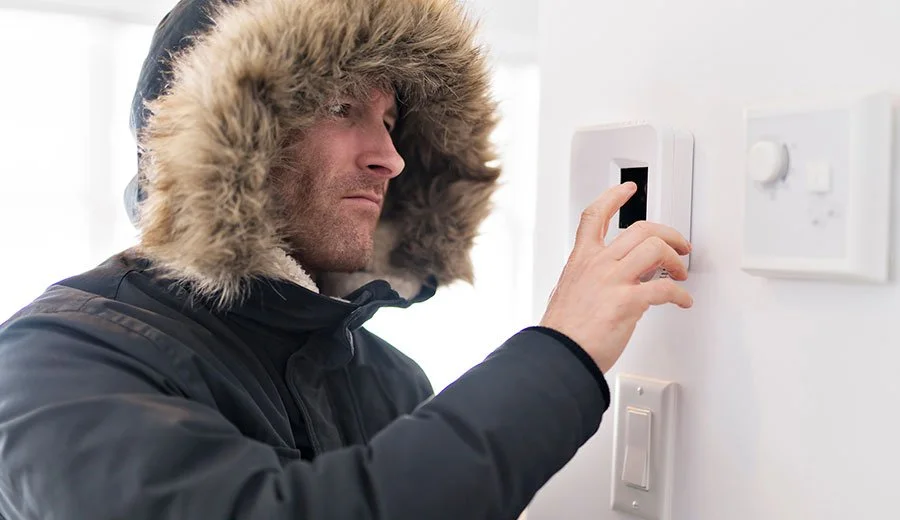10 Heating Problems of Residential Homeowners
RH Business Marketing Solutions
When the temperature outside drops, it means winter is upon us. It also means we may have to rely on our heating systems to warm our homes and make us feel comfortable throughout the cold months.
Unfortunately, these heating systems are not without a flaw, with most issues showing up when we need our heating systems the most. In situations like that, we may have to seek help from trustworthy heating repair and maintenance service providers for fast and easy troubleshooting.
But of course, when you know what these issues are and how to spot them, heating problems can be less scary. So, here is a guide to the common heating problems that residential homeowners encounter. While some can be resolved easily, others require in-depth repairs that only HVAC professionals can do.
1. Poor Performance
Many homeowners don't value the importance of regular maintenance. They tend to disregard it, not knowing it seriously impacts a heating system's performance.
When you don't care about and maintain your heating system, you may have to pay for costly repairs and suffer poor comfort levels. And to make matters worse, you may even have to replace your heating system early, which can be a bit pricey.
2. Problematic Thermostat
Thermostat issues can result in serious HVAC problems. Though most thermostats are designed to last long, some encounter problems that cause your heating system to perform poorly.
Over time, your thermostat will age and accumulate dirt. And when this happens, it may give a wrong indoor temperature reading.
If you suspect any thermostat-related problems, have it inspected by a professional right away. They will then suggest if a repair will suffice or whether a replacement is a better option.
3. Poor Airflow
When your heating system has inefficient filters, incorrectly-sized vents, disconnected ducts, or leaks, you may experience poor airflow. Hence, if you think your heating system has a problem, contact a professional HVAC technician immediately.
4. Ductwork Leaks
Leaky ductwork is a common problem that many homeowners fail to notice. And before they know it, the leak has worsened already.
Damaged structural works, disconnected pipes, or incorrectly installed heating systems are among the top causes of these leaks. Because the air escapes from the leaks, your heating system has to work harder. In this case, schedule an inspection to verify if leaks are present.
5. Dirty Air Filters
Your heating system's air filters may have collected so much dirt, causing trouble and problems in your heating system. Generally, dirty filters will limit airflow in your system and cause your heater to work harder.
Ideally, HVAC filters should be replaced every month for better filtration. This way, your heating system works efficiently throughout the years.
6. Overworked Heat Pump
If you constantly use your heating system, you will likely experience this problem. Heat pumps are designed for climates that are less than 35 degrees Fahrenheit. So, if your home is in a location with a temperature not meeting the minimum, you may be overworking your heat pumps.
7. Moldy Furnace
Moisture buildup occurs due to poor insulation or inadequate ductwork. And when moisture builds up, molds may thrive.
Should you notice an unusual smell coming from your heating system, contact a professional to clean your HVAC system.
8. High Utility Bills
Utility bills may vary from month to month. But if you notice your heating bills are higher than before, check if air leaks and heating system issues are at fault.
If you use a programmable thermostat, see if the settings are correct. You are likely heating your home more often than you prefer, which can cause the energy costs to spike. Set the fan to Auto to avoid these unnecessary expenses.
Also, if you have set your furnace to switch on and run for a few minutes only, then you are setting it to short cycling. This setting is very expensive and inefficient.
Most of the time, property risk management officers check the efficiency of heating systems in their systems when conducting audits. If they find that your heating system is the culprit behind high utility bills, it will be included in their reports.
9. Old Heating System
Unlike new heat systems, old heating systems are inefficient. So, if you are using an old heating system, consider investing in a new one. The latest models are more efficient, converting more energy to heat and reducing energy bills.
10. Noisy Heating Systems
When your heat pump system is switched on, it should only generate subtle noise. If you notice new sounds, some potential causes are:
● Loose Panels - Your heating system's panels may have fallen out of place because of a missing screw.
● Fan Belt Problems - Unlubricated bearings can create odd grinding sounds. These bearings must be oiled every year to prevent problems.
● Motor Bearing Issues - Your system's belt may need to be tightened or replaced if you hear a squealing sound.
● Delayed Ignition - When ignition systems cannot burn fuel appropriately, you may hear loud sounds.
Prevent Heating System Problems at Home!
Some heating system problems are caused by daily wear and tear. However, they can be prevented. Conduct routine maintenance and have an HVAC professional inspect your system regularly to prevent minor problems from worsening.
